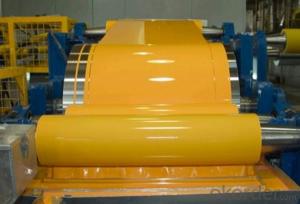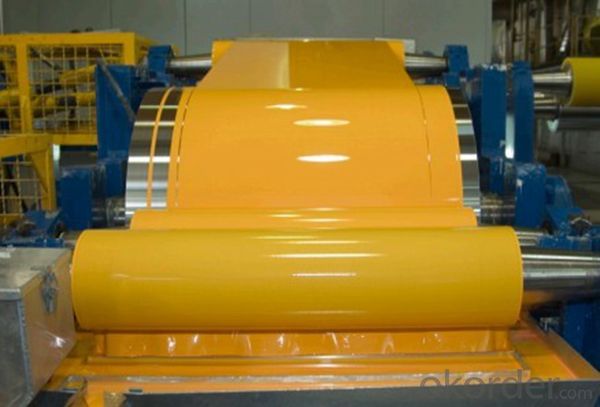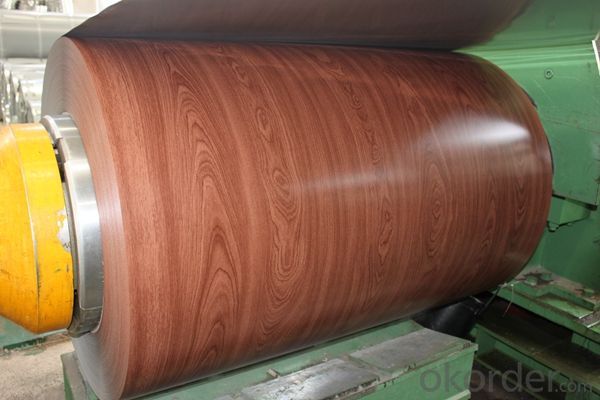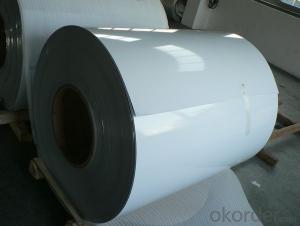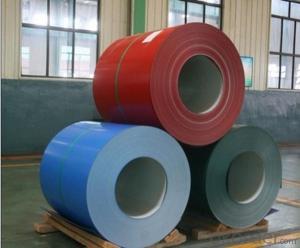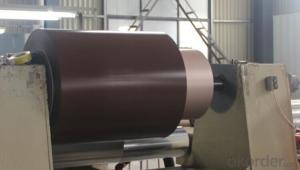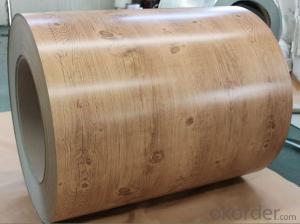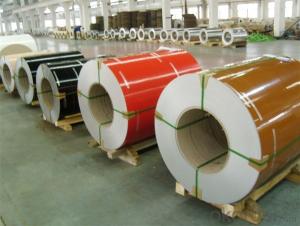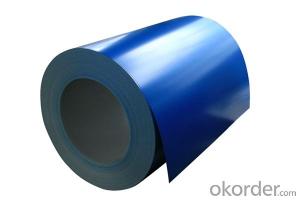Gentek Aluminum Coil - Yellow Coating Aluminum Coil for Outdoor Wall System
- Loading Port:
- Shanghai
- Payment Terms:
- TT OR LC
- Min Order Qty:
- 5 m.t.
- Supply Capability:
- 10000 m.t./month
OKorder Service Pledge
OKorder Financial Service
You Might Also Like
Specification
1. Specification of Yellow Coating Aluminum Coil for Out Door Wall System
characteristics | Application |
1) Super peeling strength | 1) Building exterior curtain walls |
2) Excellent surface flatness and smoothness | 2) Decoration and renovation additions for old buildings |
3) Superior weather, corrosion, pollutant resistance | 3) Decoration of interior walls, ceilings, bathrooms, kitchens and balconies |
4) Even coating, various colors | 4) Shop door decorations |
5) Fireproof, excellent heat and sound insulation | 5) Advertisement board display platforms and signboards |
6) Superior impact resistance | 6) Wallboards and ceilings for tunnels |
7) Lightweight and easy to process | 7) Industrial materials, materials for vehicles and boats |
2. Application of Yellow Coating Aluminum Coil for Out Door Wall System
(1).Interior: wall cladding, ceilings, bathrooms, kitchens and balconies, shutters, doors...
(2).Exterior: wall cladding, facades, roofing, canopies, tunnels,column covers , renovations...
(3).Advertisement: display platforms, signboards, fascia, shop fronts...
3. Feature of Yellow Coating Aluminum Coil for Out Door Wall System
*Such coil is specially designed to replace aluminum ingot, due to the high export tax of aluminum ingot, the coil has better price than ingot.
*This type of coil can fit customer's remelting furnace just like ingot, no need to make any change to the production line that was previously used for ingot. The standard coil size and weight is very suitable for the feed gate of furnace.
*This type of coil causes less material wastage than ingot when remelted.
*Our coil is made directly from ore, no need to go though the ingot making process, quality is much better than other suppliers who use ingot scrap to make coil.
Be free from Oil Stain, Dent, Inclusion, Scratches, Stain, Oxide Dicoloration, Breaks, Corrosion, Roll Marks, Dirt Streaks and other defect which will interfere with use
4. Certificate:
SGS and ROHS(if client request, paid by client), MTC(plant provided), Certificate of Origin(FORM A, FORM E, CO), Bureau Veritas and SGS (if client request, paid by client), CIQS certificate
5. Image of Yellow Coating Aluminum Coil for Out Door Wall System
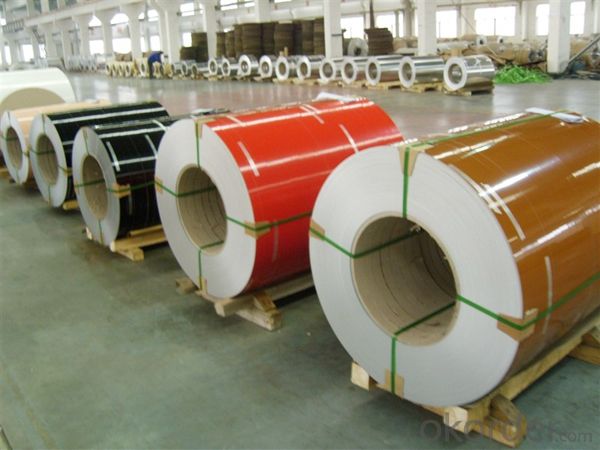
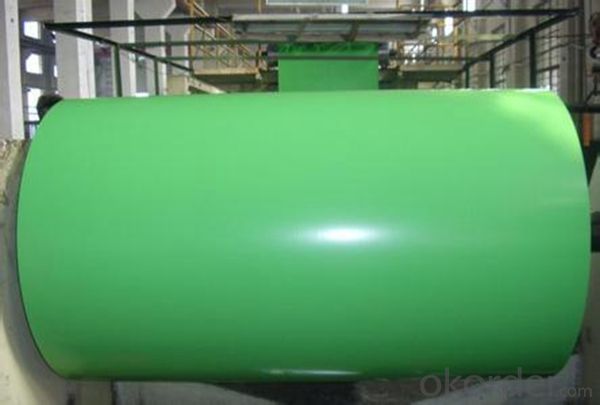
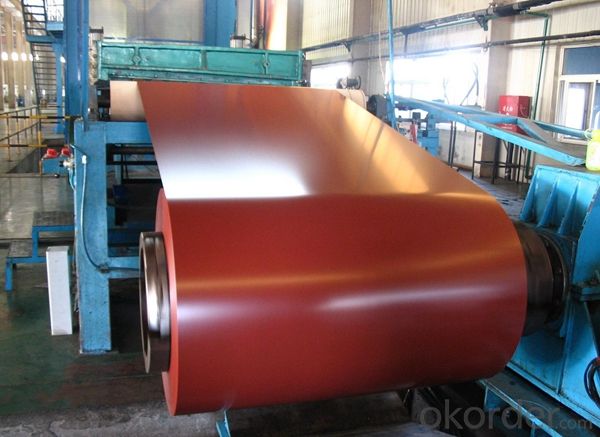
6. Package and shipping of Yellow Coating Aluminum Coil for Out Door Wall System
eye to wall
eye to the wall
with wood pallet (wooded case also available)
7. FAQ
1) What is the delivery time?
Dpends on actual order, around 20 to 35 days
2)What is the QC system:
We have QC staff of 20 persons and advanced equipment, each production is with MTC traced from Aluminum ingot lot.
3) What market do you mainly sell to?
Australia, America, Asia, Middle East, Western Europe, Africa etc
- Q: What are the different grades of aluminum used in coil manufacturing?
- There are several different grades of aluminum used in coil manufacturing, each with its own unique properties and applications. The most commonly used grades include 1100, 3003, 5052, and 6061. - Grade 1100 is a commercially pure aluminum with excellent corrosion resistance and good formability. It is often used in chemical equipment, heat exchangers, and food handling equipment. - Grade 3003 is a non-heat treatable alloy with good corrosion resistance and moderate strength. It is commonly used in cooking utensils, roofing, and general sheet metal work. - Grade 5052 is a high-strength alloy with good formability and excellent corrosion resistance. It is frequently used in marine applications, such as boat hulls and components, as well as in automotive parts and appliances. - Grade 6061 is a heat treatable alloy with excellent strength and good machinability. It is commonly used in structural applications, such as aircraft parts, bike frames, and automotive components. These grades of aluminum offer a range of properties and characteristics, allowing manufacturers to choose the most suitable grade for their specific requirements in coil manufacturing.
- Q: How are aluminum coils cleaned before further processing?
- Aluminum coils are cleaned before further processing through a series of steps to ensure the removal of any contaminants or impurities. The cleaning process typically involves the use of chemical solutions and mechanical methods. Firstly, the coils are usually soaked in a degreaser or cleaner solution to dissolve and remove any oils, greases, or dirt that may be present on the surface. This step helps to eliminate any organic contaminants that could interfere with subsequent processes. After the initial soaking, the coils are often subjected to a high-pressure water rinse to further remove any remaining residues or particles. This step helps to dislodge and flush out any loosened contaminants from the surface of the coils. In some cases, a combination of chemical cleaning and mechanical scrubbing or brushing may be employed to effectively remove stubborn or baked-on contaminants. This method is particularly useful for coils that have been exposed to more severe environmental conditions or industrial processes. Once the coils have been cleaned, they are typically rinsed again to ensure the complete removal of any cleaning agents or residues. This is important to prevent any adverse effects or interference with subsequent processing steps. Overall, the cleaning of aluminum coils before further processing is crucial for achieving high-quality end products. It helps to ensure the removal of impurities, improve the surface finish, and enhance the overall performance and longevity of the finished aluminum products.
- Q: How are aluminum coils priced?
- Various factors contribute to the pricing of aluminum coils. These factors include the current market price of aluminum, the size and thickness of the coils, the quantity being purchased, and any additional customization or processing requirements. The market price of aluminum is influenced by factors such as supply and demand, global economic conditions, and trade policies. The cost of the coils can be influenced by their size and thickness, as larger or thicker coils typically require more raw materials and production time. The price may also be affected by the quantity being purchased, with larger orders potentially receiving volume discounts. Furthermore, any additional customization or processing, such as coating or shaping, can impact the overall price. In summary, the pricing of aluminum coils is a complex process that considers various factors relating to production costs and market conditions.
- Q: How are aluminum coils used in the production of cookware?
- Aluminum coils play a crucial role in the production of cookware due to their unique properties and versatility. These coils are used as the primary material in the manufacturing process of various types of cookware, including pots, pans, and baking sheets. Firstly, aluminum coils are known for their excellent heat conductivity, which allows for efficient and even heat distribution throughout the cookware. This property ensures that food is cooked evenly and reduces the chances of hot spots or uneven cooking. This is particularly important for achieving optimal cooking results and preventing food from burning or sticking to the cookware. Secondly, aluminum coils are lightweight yet durable, making them ideal for cookware production. The lightweight nature of aluminum ensures that the cookware is easy to handle and maneuver while cooking, reducing the risk of accidents or injuries. Additionally, aluminum's durability ensures that the cookware can withstand high temperatures, constant use, and the rigors of everyday cooking without warping or deforming. Furthermore, aluminum coils are highly resistant to corrosion and rust, making them suitable for cookware that comes into contact with food and liquids. This property ensures that the cookware remains hygienic and safe for cooking purposes, as aluminum does not react with acidic or alkaline ingredients commonly used in cooking. Moreover, aluminum coils are malleable and can be shaped into various cookware designs, including pots, pans, and bakeware with different sizes, shapes, and depths. This flexibility allows for the production of cookware that caters to different cooking techniques and preferences. In terms of production, aluminum coils are typically subjected to a series of manufacturing processes, such as rolling, annealing, and stamping, to transform them into the desired cookware shape. These processes ensure the final cookware product meets the required specifications in terms of thickness, strength, and appearance. In conclusion, aluminum coils are essential in the production of cookware due to their excellent heat conductivity, lightweight yet durable nature, resistance to corrosion, and malleability. These properties enable the creation of high-quality cookware that provides efficient and even cooking results, durability, and ease of use. Overall, aluminum coils contribute significantly to the functionality and performance of cookware, making them a popular choice in the industry.
- Q: How are aluminum coils used in solar panels?
- Aluminum coils are used in solar panels as part of the construction and structure of the panel. They are used to hold the solar cells in place and provide a sturdy framework for the overall structure. Additionally, aluminum coils help with heat dissipation and ensure efficient functioning of the solar panel by preventing warping or damage caused by temperature fluctuations.
- Q: Can the 5-10cm thick paper sleeve inside the scrapped aluminum coil be sliced? Now we use knife which is much troublesome.
- You can use Long Men Rolling Mill to slice directly.
- Q: I heared the aluminum weakens or melts.
- Mercury readily combines with aluminium to form a mercury-aluminum amalgam when the two pure metals come into contact. However, when the amalgam is exposed to air, the aluminium oxidizes, leaving behind mercury. The oxide flakes away, exposing more mercury amalgam, which repeats the process. This process continues until the supply of amalgam is exhausted, and since it releases mercury, a small amount of mercury can “eat through” a large amount of aluminium over time, by progressively forming amalgam and relinquishing the aluminium as oxide. Aluminium in air is normally protected by a thin layer of its own oxide, which is not porous to mercury. Mercury coming into contact with this oxide does no harm. However, if any elemental aluminium is exposed (even by a recent scratch), the mercury may combine with it, starting the process described above, and potentially damaging a large part of the aluminium before it finally ends.
- Q: Can aluminum coils be anodized for enhanced durability?
- Indeed, it is possible to anodize aluminum coils in order to enhance their durability. Anodization involves the creation of a layer of aluminum oxide on the surface of the aluminum, resulting in increased resistance to corrosion, wear, and scratches. This layer also offers added protection against UV rays and harsh environmental conditions. By subjecting aluminum coils to anodization, they become more resilient and capable of enduring extended use in a variety of industries, including construction, automotive, and electronics. Moreover, anodized aluminum coils can be further enhanced with additional coatings or finishes to improve their appearance and provide additional protection. Overall, anodizing aluminum coils is a widely employed and efficacious technique for boosting their durability and extending their lifespan.
- Q: Can aluminum coils be used in the production of aluminum cladding?
- Yes, aluminum coils can be used in the production of aluminum cladding.
- Q: What rules or laws govern the transportation of old or damaged aluminum coils?
- <p>Yes, there are regulations on the transportation of old or damaged aluminum coils. These regulations often fall under hazardous materials or waste transportation laws, depending on the condition of the coils. In the United States, the Department of Transportation (DOT) regulates the transportation of hazardous materials, which may include damaged aluminum coils if they pose a risk. The Environmental Protection Agency (EPA) also has guidelines for the transportation of waste materials. Internationally, the International Maritime Dangerous Goods (IMDG) Code and International Air Transport Association (IATA) Dangerous Goods Regulations provide guidance for the safe transport of such materials. Compliance with packaging, labeling, documentation, and handling requirements is crucial to ensure safety and avoid penalties.</p>
Send your message to us
Gentek Aluminum Coil - Yellow Coating Aluminum Coil for Outdoor Wall System
- Loading Port:
- Shanghai
- Payment Terms:
- TT OR LC
- Min Order Qty:
- 5 m.t.
- Supply Capability:
- 10000 m.t./month
OKorder Service Pledge
OKorder Financial Service
Similar products
Hot products
Hot Searches
Related keywords
